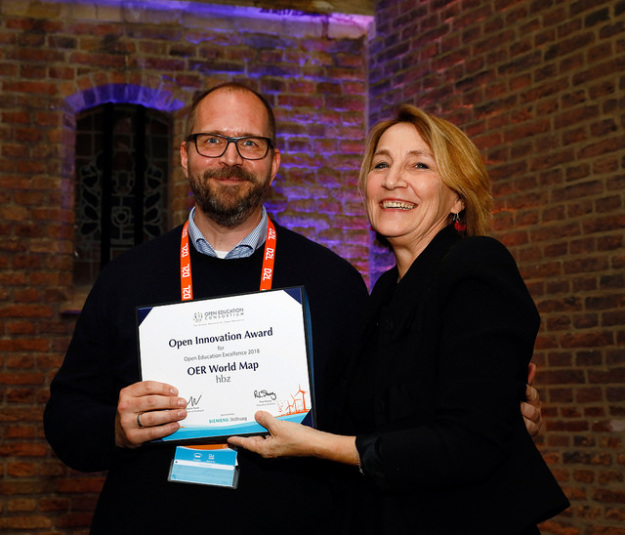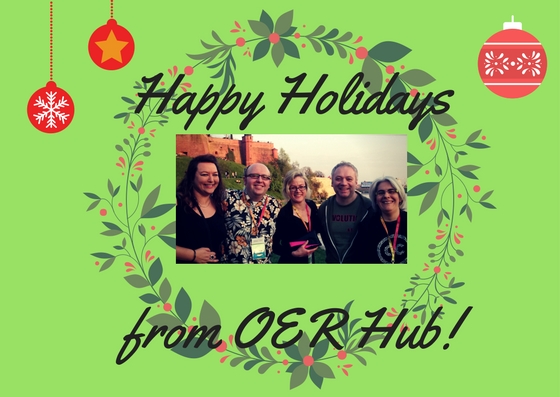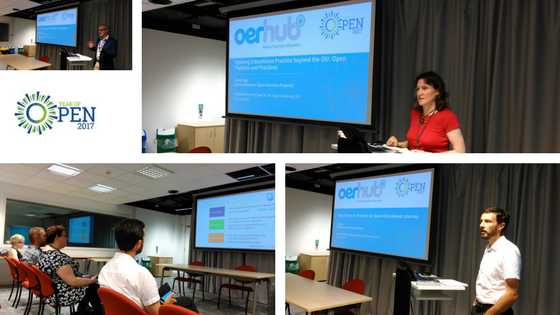OK… things aren’t that bad! But I was sad to leave Houston after a great week with the Connexions conference team and attendees. Thanks to everyone for making me feel so welcome and for taking time out to chat. I’ve been back in the UK for over a week now, so – without procrastinating further – here’s the final blog post.
As part of my schedule, and with the aim of building up a “snapshot” of different stakeholder perspectives on OER, I interviewed a number of people who were participating in the Connexions conference. As befits a project about “openness” we are aiming to release as much of this footage as we can “in the open” e.g. on open licenses. I’ll be working on the footage over the coming weeks so stay turned for more on this. In the meantime, extra special thanks to all those who participated in interviews with me: Richard Baraniuk (Rice/Connexions), David Harris (Open Stax College), Sara Frank Bristow and Pete Forsyth from Communicate OER, Sidney Burrus (Rice/Connexions), Provost George McLendon (Rice) and Dr Mark Morvant (Oklahoma). It was a privilege to speak with you all.
The rest of the conference…
The final conference session I attended, prior to Richard Baraniuk’s closing remarks, was “Impact: Faculty and Student Perspectives” with Mark Morvant (Oklahoma), Heather Wylie (Shasta College), and Erik Christensen (College of South Florida). It was an exciting session with speakers discussing the impact of OpenStax on learning and teaching practice. Great footage of students talking about OpenStax too!
You can watch Erik’s Opentextbook testimonial here and more on this session is available via Twitter (see @BeckPitt).
Sprinting toward the Finish Line…
Content and coding sprints took place on the Wednesday and Thursday. I joined Pete Forsyth and Sara Frank Bristow of Communicate OER to find out more about how to contribute Wikipedia. This was followed by working with Daniel and others to create the initial OpenStax College Wikipedia entry. There was also much debate and discussion around the Open Educational Resources article: whilst a lot of work has taken place recently to improve this entry, more input is needed, particularly on the OER Policy section.
The self-reflective bit
As part of the project, we’ve been asked to reflect on our research trips, perhaps from a more personal perspective. Here’s what I noted (in no particular order) over the duration of the visit. Definitely no deep thoughts or surprises here (sorry!):
1) Going well-prepared for different scenarios and activities is vital. You can’t just “pop back” and grab something vital that you forgot when you’re 5,000 miles from home. It’s a cliche but the “best laid plans…” mean that you need to be flexible and be able to adjust to different circumstances seamlessly (or at least give the impression that this is the case!) Be ready to freestyle, change your plans and beware of the “one-size-fits-all” approach/activity. For example, what worked well at one conference, might not work so well elsewhere.
2) Interviewing conditions vary when you’re on the road: you will need to accept that the ideal set-up will remain just that… Speaking with people in a variety of locations (e.g. vacant classrooms, interviewees offices etc.) means that, for example, the position and height of the camera will be determined by the furniture set-up and what you can feasibly move around, backgrounds are inconsistent and lighting varies etc. At certain events it may appropriate and feasible to organise a specific space to carry out interviews in. Otherwise, be prepared to improvise! Oh, and (at the risk of stating the obvious) remember to pack an audio recorder as a back-up to your video recordings.
3) If something goes awry, make a joke out of it. Something happen that shouldn’t of? Glaringly obvious mistake that somehow missed the numerous proof readings you did? Touting UK-centric lists because you forgot to make them relevant for a US audience? Don’t sweat it. Keep smiling and don’t worry, it’s usually not a big deal. Plus the more different perspectives/feedback you can get on something the better.
4) Be prepared to jump in, seize every opportunity that comes your way and speak to as many people as you can (in the lunch queue? somebody on their own? person sitting next to you? Go forth and converse!) … and fight that jetlag/lack of sleep! Or, if things are getting too full on, just tweak your original plans. For example, my plan to live-blog earlier in the week (which I never quite managed as all my blog posts were slightly later than the events they were referring to; a bit like this rather overdue post, ahem!) was replaced by tweeting mid-way-through on Monday. A good experience (as I’d never tried to live-blog before) but juggling drafting a blog post with taking photos and tweeting for extended periods is possibly a bit overkill and I was certainly feeling it after a few hours.
5) Power hungry appliances or lots of tech (e.g. laptop, mobile for tweeting and photos and a video camera)? Or maybe you haven’t used the equipment for extended periods yet? Bring more than one currency converter plug with you and carry at least one with you at all times.
6) Tweeting from the conference sessions has an added bonus: people know who you are through the conference Twitter feed. Although on the couple of occasions where I accidentally referred to somebody else as a speaker who was no longer attending (as the programme had changed) meant that I probably wished at that point that people didn’t know who I was! An example of multi-tasking gone bad and over-reliance on the programme – Beware!
#oerrhub #cnxcon #cnxsprint #self-reflection #wikipedia
(http://methylatedorange.wordpress.com/2013/05/09/connexions-partii/)








Leave A Comment